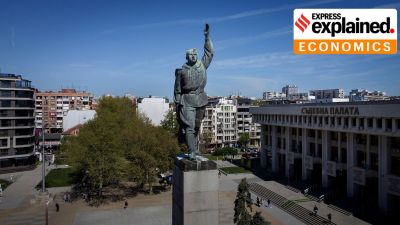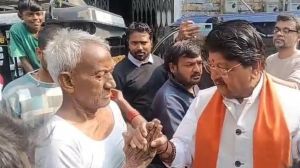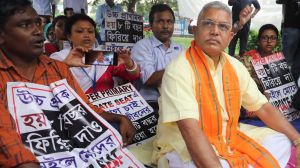Black and white
The discovery of racism in Mumbai's Colaba should occasion no surprise or horror, for it thrives through the length and breadth of the count...

The discovery of racism in Mumbai8217;s Colaba should occasion no surprise or horror, for it thrives through the length and breadth of the country, from its greatest metros to its meanest hamlets. In India, what is seen in most countries as a most incorrigible perversion is taken to be a fact of life. Indians do not talk about it, of course, but this should not be construed to mean that it does not exist. In fact, though, Indians do talk about it 8212; in the matrimonial columns of the newspapers. These offer sufficient evidence to support the thesis that no woman can possibly aspire to marry unless she is either fair which is the ideal state of affairs or at least of wheatish complexion8217;, whatever that may mean. Rich seams of racism are also to be found in our popular culture, especially the movies. Other than Rajnikanth, it is difficult to think of a single dark man who gets to play the lead. And even Rajnikanth usually depicts characters who are all heart but not quite sound in the head. The same applies totop-drawer actresses 8212; only Smita Patil comes to mind. But it is child8217;s play to think of dark people who get to play the bad guys and very little else. Their names are legion.
So the discovery that racism is alive and well at the Cafe Leopold does not quite rank on par with the discovery of live dodos, and cannot possibly generate excitement. But it must call for condemnation in the strongest possible terms. Let us not forget that had it not been for the Mahatma8217;s humiliating encounter with racism in South Africa, the struggle for Indian Independence might have been a very different story. For its birth, this nation owes a not inconsiderable debt to the idea that all men should be free and equal, irrespective of their colour. South Africa8217;s Truth and Reconciliation Commission is the final product of a movement to which Gandhi contributed in no small measure. And today, the Cafe Leopold repays that debt and honours the memory of the Mahatma by inflicting its racism on two stewardesses who, ironically, turnout to be South African.
True, racism is not a major issue in India because there are not too many black people around. But if India is to integrate with the world economy, its citizens must come to terms with many peoples, including blacks. The National Human Rights Commission is perfectly right in asking the chief secretary of Maharashtra for an explanation for the shameful incident in Mumbai. But its responsibility should not end there. It should go on to look at the little telltale signs of racism that Indian society is rife with, ranging from the crazed hunt for wheatish complexioned8217; women to the embarrassing way in which Indian families parade white guests before their circle of acquaintances. Punishment for such acts is not the issue. But the commission can at least enthuse people to talk about a problem that has remained under the carpet for far too long. Why blame the Cafe Leopold alone, even though it is named like some relic from the savage colonial past of the Belgian Congo? The responsibilityfor tacitly accepting racism is to be borne by every Indian.
- 01
- 02
- 03
- 04
- 05































